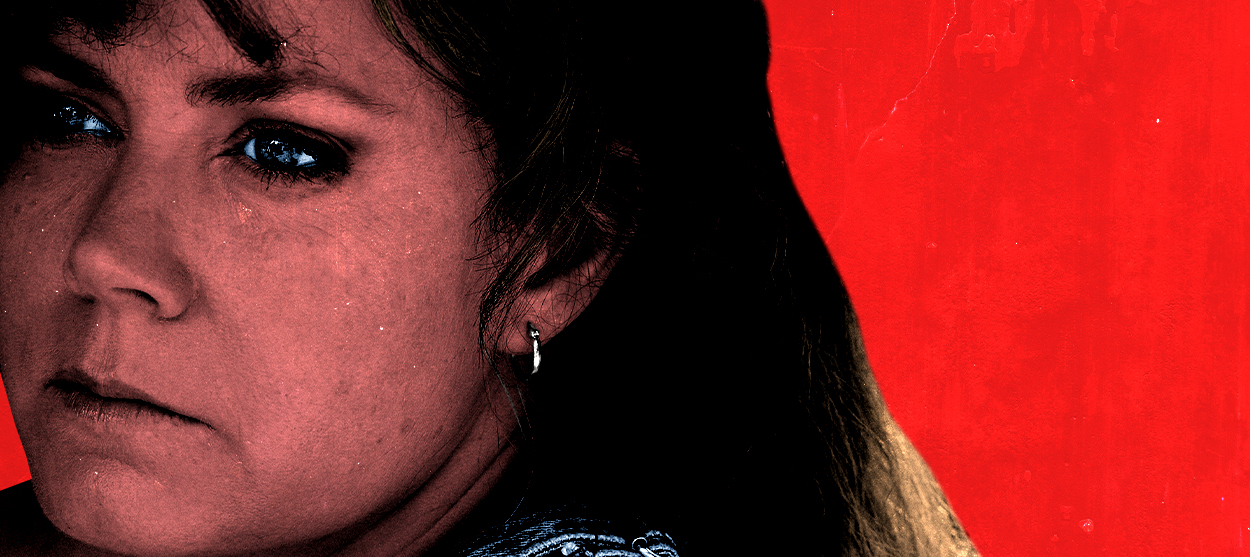Amy Adams is too good to do something like Hillbilly Elegy
Let's hope this is a blip and not a trend in a stellar and varied career


A free daily email with the biggest news stories of the day – and the best features from TheWeek.com
You are now subscribed
Your newsletter sign-up was successful
No actors have a perfect track record. It just isn't in the nature of a profession that involves so much collaboration and, ideally, risk-taking. Given that, Amy Adams has one of the most impressive filmographies around. Though not every movie she's made since her 2005 breakthrough Junebug has been a winner, a list of her best work is as long, strong, and varied as any performer of her generation. Movies like The Master, American Hustle, The Fighter, Talladega Nights, Big Eyes, Her, The Muppets, and Doubt are her rule, not occasional exceptions. She's the rare actor who can amass six Oscar nominations and still have a substantial list of shoulda-been-nominated parts (how was she overlooked for Arrival?).
She's also the rare actor who's been nominated for six Oscars without winning. In her new movie Hillbilly Elegy, she's in good company; Adams appears opposite Glenn Close, who has a similar seven-nomination streak without a win. Ultimately, this shouldn't matter. Both Close and Adams have already assured their respective legacies. Unfortunately, no one seems to have told Hillbilly Elegy this. It seems custom-designed to win one or both of them an Oscar, and makes everyone involved look worse in the process.
The requisite awards-chasing de-glamming is in effect here, ignoring how often Adams has been willing to downplay her beauty in more subtle ways in the past. No matter: Bev, the Kentucky-to-Ohio transplant she plays in this adaptation of J.D. Vance's bestselling memoir, goes further, wearing her extra-long hair with bangs and acid-wash well into the late '90s, where about half the story takes place. She's the troubled mom of J.D. (Owen Asztalos as a kid; Gabriel Basso as an adult), struggling to make ends meet for her single-parent household and descending into addiction. Close plays Mamaw, Bev's mom, who lives in similarly dire circumstances and fights to keep her grandson on the right path.
The Week
Escape your echo chamber. Get the facts behind the news, plus analysis from multiple perspectives.

Sign up for The Week's Free Newsletters
From our morning news briefing to a weekly Good News Newsletter, get the best of The Week delivered directly to your inbox.
From our morning news briefing to a weekly Good News Newsletter, get the best of The Week delivered directly to your inbox.
Adams is the only actor billed above the title, and she has lots of big scenes. Actually, she has almost nothing but big scenes: Bev explodes with rage, roller-skates down a hospital hallway while high (and on the clock as a nurse), begs for help, angrily refuses help, and explodes with rage again. For most of her screen time, she's playing an addict, and Hillbilly Elegy has an addict's desperation, clawing for a fix of showy breakdowns. If a scene doesn't end with a physical confrontation and/or the cops showing up, the movie seems to ask, does it really count as acting?
Hillbilly Elegy can't really be blamed on Adams, or any of its actors. It can't even be entirely blamed on the screenplay's weirdly agnostic, myopic ideas about American poverty, addiction, and hopelessness. On a level of pure craft, the movie is shockingly inept, reducing its narrative to a series of barely-contextualized sequences of amped-up melodrama. Director Ron Howard cuts between J.D. growing up in Ohio and dealing with a family crisis years later as he attempts to fit in at Yale Law, and key information seems to get lost in the endless back-and-forth. Adams gives the rawest performance in the movie —Close, for her part, does a lot of makeup-enabled mugging — and rather than conveying emotional directness, her rawness comes across as uncooked. Her usual conviction and sensitivity are no match for the fact that Bev's problems are so clearly and frequently verbalized. Adams doesn't have space to utilize the quieter, more reactive style she's perfected elsewhere. The movie has no use for it.
It's the neediness of Hillbilly Elegy that sets it apart from other Adams performances, even in her less successful films. Many of her characters have a certain scrappy optimism that could have played well in the Hollywood of the '40s or the '50s; she's fine as Lois Lane in Zack Snyder's aborted Superman series, but would have been better in a period-piece version (or at least a movie that cared more about Lois). She's done screwball-ish comedy (as in the underseen Miss Pettigrew Lives for a Day) and even played a Disney princess made flesh (as in Enchanted), with a clear understanding of the conflict and self-doubt brewing beneath a bubbly surface. Yet for all her ebullience, she doesn't often go big. In the wild acting competition of American Hustle, she's the quietest and least showy of the four leads, even with her fake British accent and ostentatious cons. For smaller parts in Her and Vice, she doesn't aspire to steal scenes. It's her ability to hold our attention while simply thinking that makes her center-stage work in Arrival so compelling.
This all makes her performance in Hillbilly Elegy stand out even more, and not in a good way. Moment to moment, nothing in the movie feels out of her considerable range. Taken together, her work plays like a series of awards-show clips. No judgments if she really does want that Oscar; she's been deserving many times over the course of her career. But she's so deftly avoided bad material for so long that seeing her vamp through this mess is particularly jarring. It's a grim reminder of how Hollywood sees middle-aged women primarily as moms, awards bait, and possible stars of prestige TV. As embarrassing as it would be for Hillbilly Elegy to win anyone an Oscar, maybe that's the best-case scenario: Adams gets her long-overdue award and gets to keep indulging her exceptional talent and taste.
A free daily email with the biggest news stories of the day – and the best features from TheWeek.com
Jesse Hassenger's film and culture criticism has appeared in The Onion's A.V. Club, Brooklyn Magazine, and Men's Journal online, among others. He lives in Brooklyn, where he also writes fiction, edits textbooks, and helps run SportsAlcohol.com, a pop culture blog and podcast.
-
 Local elections 2026: where are they and who is expected to win?
Local elections 2026: where are they and who is expected to win?The Explainer Labour is braced for heavy losses and U-turn on postponing some council elections hasn’t helped the party’s prospects
-
 6 of the world’s most accessible destinations
6 of the world’s most accessible destinationsThe Week Recommends Experience all of Berlin, Singapore and Sydney
-
 How the FCC’s ‘equal time’ rule works
How the FCC’s ‘equal time’ rule worksIn the Spotlight The law is at the heart of the Colbert-CBS conflict
